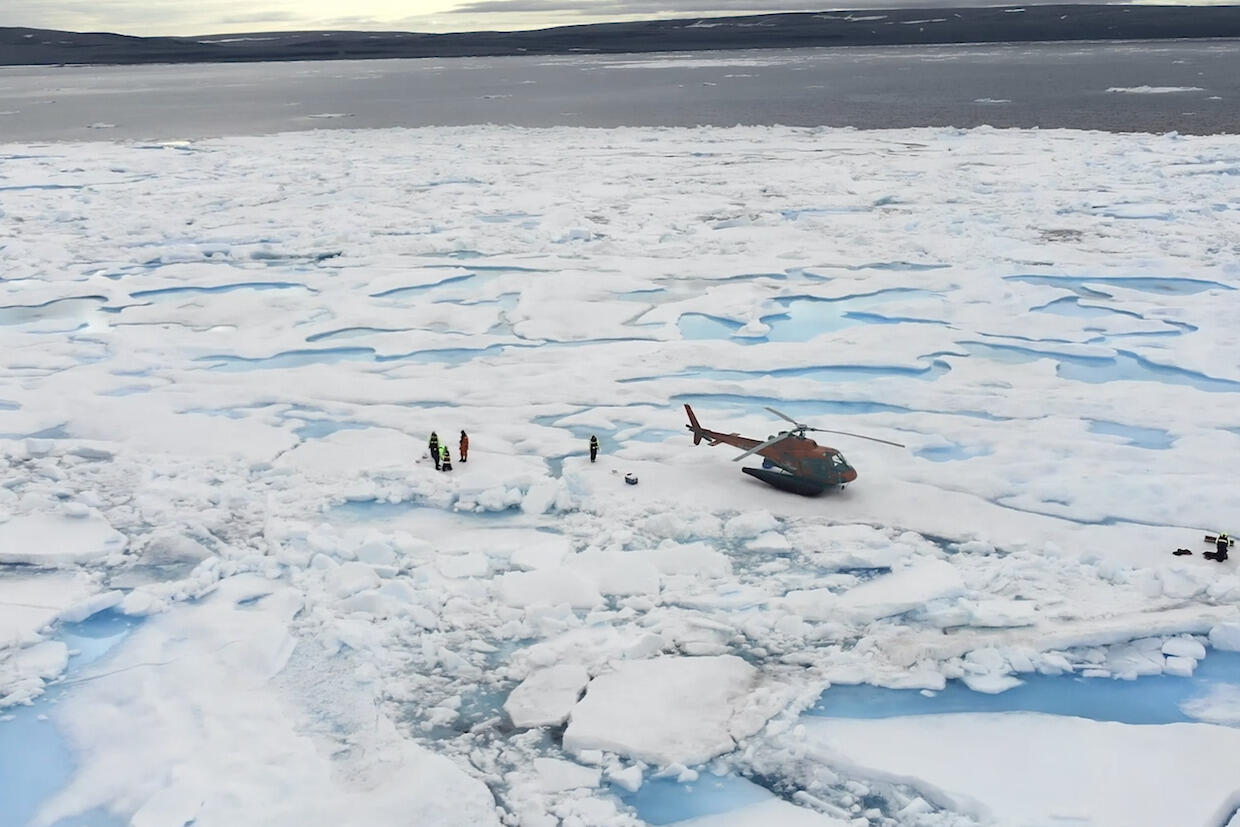
Feb. 9, 2021
VCU alumni to share stories of their Canadian Arctic expedition at documentary film premiere
Share this story
Three former Virginia Commonwealth University Center for Environmental Studies students will participate Feb. 12 in the world premiere of a feature-length film chronicling a research expedition to the Canadian Arctic.
Hosted by VCU associate professor Linda Fernandez, Ph.D., Mirella Shaban, Tristan Rivera and Ericka Schulze will share their experiences as part of the Northwest Passage Project during a panel discussion after the debut of the documentary “Frozen Obsession.” The premiere and discussion will serve as the official kickoff to the 11th annual RVA Environmental Film Festival, which is virtual this year.
Interested attendees can register on the film festival website to view the event.
Directed and produced by David Clark, “Frozen Obsession” documents the 2019 Northwest Passage Project expedition — a National Science Foundation-supported voyage that studied the increasing impacts of climate change on the Canadian Arctic Archipelago. Teams from eight universities, including VCU, conducted research in microbiology, water chemistry, marine mammals and physical oceanography throughout the 2,000-nautical-mile journey on board the Swedish icebreaker Oden.
To help raise public awareness of the journey, science communicators and educators worked with researchers on interactive events and offerings including a Facebook Live broadcast directly from the Oden, the first of its kind from the Northwest Passage. Beyond depicting the physical impacts of climate change on the Arctic, “Frozen Obsession” also looks at the natural history of the region and the unique challenges faced by Arctic residents.
For Shaban and Rivera, the panel discussion represents a chance to reflect on unique experiences and lessons learned during the expedition. Expecting an ocean covered in ice, for example, Shaban was surprised that the reality was, in fact, the exact opposite with only a few icebergs spotted along the way. “The changes occurring in the Arctic are rapid and far more striking than one may think,” she said.
Working alongside the unique collection of researchers, educators and communicators involved in the Northwest Passage Project provided Shaban with the opportunity to engage in crosscutting research activities.
“We had people interested in topics ranging from marine mammals to atmospheric chemistry to glacial retreat and freshwater transport,” she said. “It was truly interdisciplinary and reflects the variety of questions to be answered in the Arctic.”

Rivera, now a land surveyor for an engineering firm, hopes that viewers of “Frozen Obsession” gain an appreciation for the value of life.
“I view every life [form], from the worms I see in the ground at my job to the narwhals presented in this movie, as owning inherent worth,” he said. “Our home, Earth, has her own individual life that is important to the well-being of every other individual life that we have ever known, studied or lived.”
Now a doctoral student at the University of Virginia studying environmental science, Shaban credits the Northwest Passage Project as a crucial moment in her growth as a researcher. “I learned how to trust my intuition and truly believe in my capabilities as a scientist,” she said. “I learned more than I thought I would, and in areas that I did not expect.” She hopes to discuss more the expanding role that women and minority-identifying researchers in STEM fields can have in the discussion around topics such as climate change.
Additional panelists at the event will include director Clark as well as expedition scientists Donglai Gong from the Virginia Institute of Marine Science, Christopher Knowlton from the Inner Space Center at the University of Rhode Island, and Nicole Trenholm from the University of Maryland.
Subscribe to VCU News
Subscribe to VCU News at newsletter.vcu.edu and receive a selection of stories, videos, photos, news clips and event listings in your inbox.








